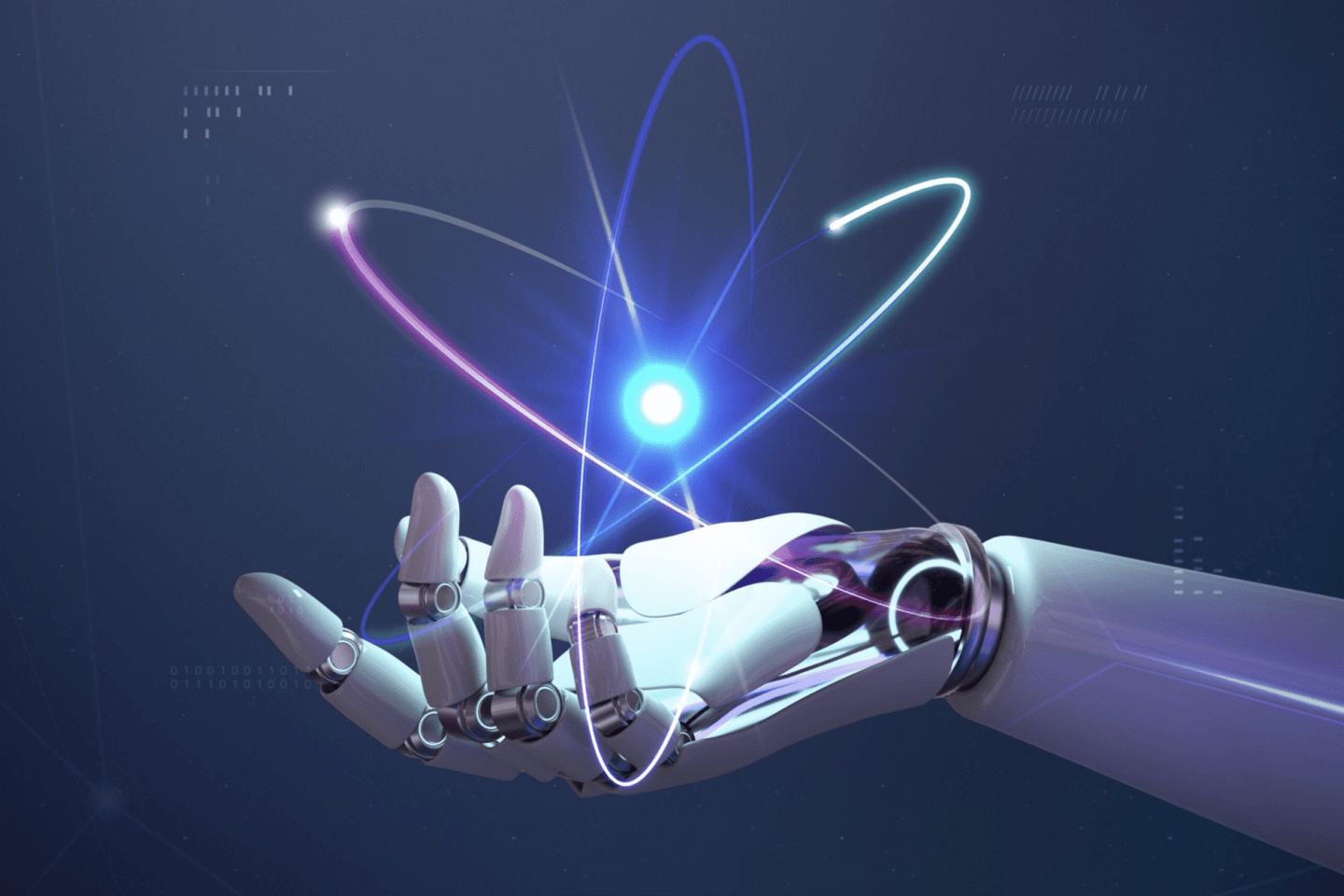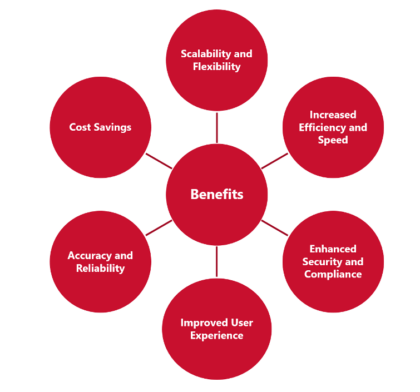
Redefining Software Testing with AI: The evolution and future trends
As software development continues to advance rapidly, efficient and reliable testing is more important than ever. Traditional testing methods have their strengths, but they can fall short when it comes to speed, scalability, and precision. That’s where Artificial Intelligence (AI) steps in, reshaping the way testing is done. At Hitachi Solutions, we’re proud to be at the forefront of this change, using innovative AI technologies to deliver testing results that truly stand out.
Why do we need AI in Software Testing?
The fast pace of software development requires testing methods that are both efficient and reliable. Traditional testing methods often can’t keep up with the complexity and speed of modern software, leading to higher costs and delayed releases. AI helps solve these problems by automating repetitive tasks, improving test accuracy, and predicting potential issues. This shift not only boosts software quality but also speeds up time-to-market and makes better use of resources.
Popular AI-driven tools used for Software Testing
There are several AI-driven tools available in the market such as Leapwork, Microsoft Copilot, Applitools, Functionize, Eggplant, Perfecto and others that are transforming software testing with their advanced capabilities. Below are some of the prominent tools used within Hitachi Solutions to enhance software testing:
Leapwork – Leapwork revolutionises the automation process with its powerful no-code platform, enabling teams to build and maintain automation tests visually without writing a single line of code. Its intuitive drag-and-drop interface supports complex workflows, making automation accessible to both technical and non-technical team members. Seamlessly integrating with popular CI/CD tools, Leapwork enhances testing efficiency, improves software quality, and accelerates delivery timelines.
Key features of Leapwork include: Visual test creation, cross-platform support, seamless integration with popular CI/CD tools like Azure DevOps etc, robust reporting and scalability
Power CAT Copilot Studio Kit – With the increasing adoption of Copilots, robust testing tools are essential to ensure custom Copilots meet user expectations and deliver significant business value. The Power CAT Copilot Studio Kit by Microsoft enables automatic testing and validation of AI-generated content, featuring Excel export/import for bulk updates and user-friendly configuration.
Currently, the tool supports the following types of tests: Response exact match, attachments match, topic match, generative answers.
To ensure the effectiveness of Copilot responses, tests are conducted against the Copilot Studio APIs for thorough assessment. This process is enhanced by data from Azure Application Insights and Dataverse. Analysing Conversation Transcript records helps identify triggered topics and intent recognition scores, providing deeper performance insights. For AI-generated answers, AI Builder prompts compare responses with sample answers or validation instructions. These comprehensive testing and validation processes significantly improve user satisfaction and drive the successful adoption of custom Copilots.
Microsoft Copilot – Microsoft Copilot leverages advanced AI to assist in code generation, review, and documentation, streamlining the development process. Integrated within popular Microsoft applications, Copilot provides context-aware suggestions and automates repetitive tasks, thus boosting productivity and code quality.
The current landscape of AI in Software Testing
AI technologies are being increasingly integrated into various stages of the software development lifecycle. AI-driven testing tools, including Leapwork for automation and Microsoft Copilot, are now indispensable for organisations aiming to enhance their testing processes, achieve faster releases, and maintain high-quality standards. Here are some key developments done:
- Automated Test Case Generation: AI algorithms can analyse code and automatically generate a wide range of test cases, ensuring comprehensive coverage.
- Integration with DevOps: AI is being integrated with DevOps practices, enabling continuous testing and seamless collaboration between development and operations teams.
- AI-Driven Test Data Management: AI-driven test data management revolutionises how test data is generated and maintained, ensuring accuracy and compliance. AI creates realistic, scenario-specific test data without compromising sensitive information. Advanced masking and anonymisation techniques protect user data and ensure regulatory compliance. Additionally, AI continuously refreshes test data to keep tests relevant and effective throughout the development lifecycle.
- Shift-Left Testing: AI facilitates shift-left testing by allowing testing to begin earlier in the development cycle, catching defects sooner and reducing overall costs.
- Enhanced Security Testing: AI enhances security testing by automatically identifying vulnerabilities, simulating attack scenarios, and ensuring robust protection against cyber threats.
- Predictive Analytics: AI can predict potential failure points and performance issues, allowing pre-emptive action.
- Self-Healing Tests: AI-driven tests can adapt to changes in the application, reducing maintenance efforts.
- AI-Driven User Experience Testing: AI-driven user experience testing enhances software usability by analysing user behaviour and feedback. It identifies usability issues and optimises interfaces for better user satisfaction. By tailoring test scenarios to individual user profiles and usage patterns, AI ensures a personalised and seamless user experience.
Our AI testing suite ensures exceptional efficiency, accuracy, and cost-effectiveness. These innovations empower us to achieve unparalleled scalability in our testing endeavours, and help support our commitment to pioneering technological advancements and delivering high-quality software solutions.
Seema Goswami
Senior QA consultant
Future of AI in Software Testing
Here are some key trends to watch for in the future of AI-driven software testing, these advancements in AI will lead to higher efficiency, accuracy, and cost savings, setting new standards for software quality and reliability, positioning organisations to thrive in a competitive market.
Fully Autonomous Testing Systems
- AI will enable systems to independently design, execute, and analyse tests.
- These systems will continuously learn from real-time data, improving test accuracy and efficiency over time.
Explainable AI (XAI)
- XAI will provide transparency into AI-driven testing processes.
- Testers will be able to understand and trust AI decisions, fostering better collaboration between human testers and AI systems.
AI-Augmented Human Testers
- AI will assist human testers by providing intelligent insights and recommendations.
- This collaboration will allow human testers to focus on more complex and creative testing scenarios, enhancing overall test coverage.
Seamless Integration with DevOps
- AI-driven tools will integrate more deeply with DevOps practices, enabling continuous testing and faster release cycles.
- Predictive maintenance and intelligent automation will streamline the CI/CD pipeline, improving software delivery speed and quality.
Advanced Test Data Management
- AI will enhance test data management by generating and updating realistic test data in real-time.
- Ensuring data privacy and compliance through intelligent data masking and anonymisation techniques will become more robust.
Enhanced Security Testing
- AI will improve the detection and prevention of security vulnerabilities.
- Automated threat modelling and security patching will ensure robust protection against cyber threats.
Improved User Experience Testing
- AI will analyse user behaviour and feedback to identify usability issues and optimise interfaces.
- Personalised testing scenarios based on user profiles and emotion recognition will enhance user satisfaction and retention.
Cost Savings and Efficiency
- Initial investments in AI-driven testing will lead to significant long-term savings.
- Reduced manual efforts and faster issue resolution will optimise resource utilisation and lower overall testing costs
The 6 benefits of AI in Software Testing

How can Hitachi Solutions help your AI journey?
The integration of AI into testing processes is not just a trend, but a necessary evolution to meet the demands of modern software development. Hitachi Solutions AI testing suite, enhanced by partnerships with Microsoft, Leapwork and others, offers unparalleled efficiency, accuracy, and cost savings, positioning organisations for success in a competitive market.
Explore the future of testing with Hitachi Solutions and experience the power of AI in ensuring high-quality, reliable software.
